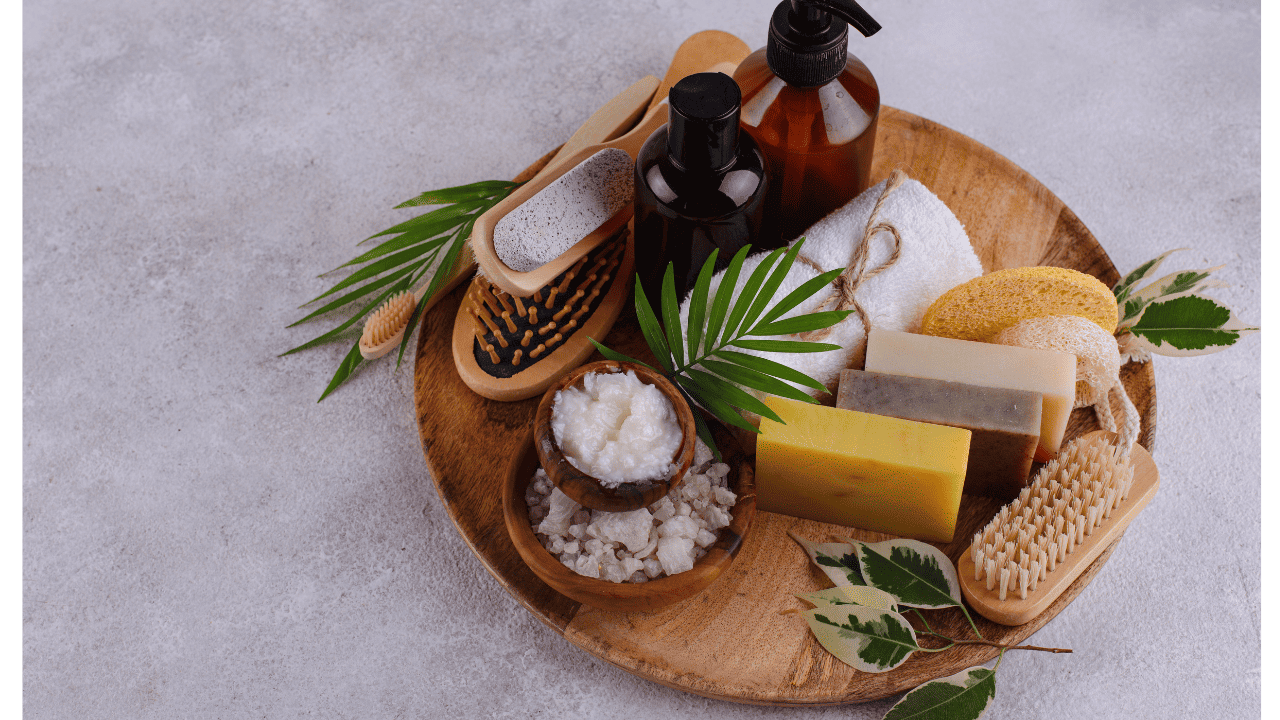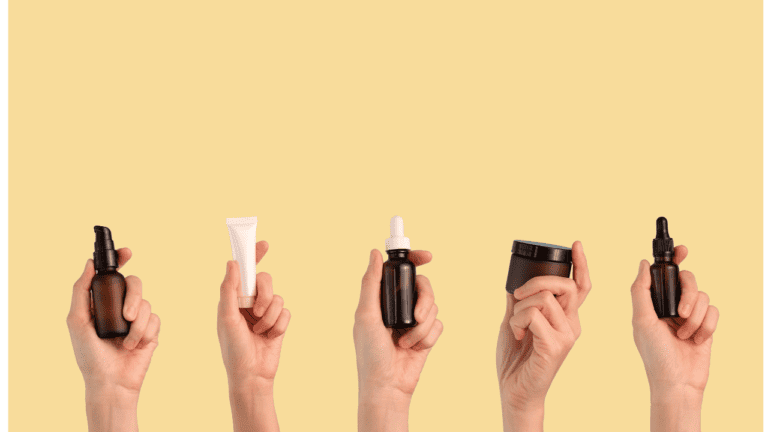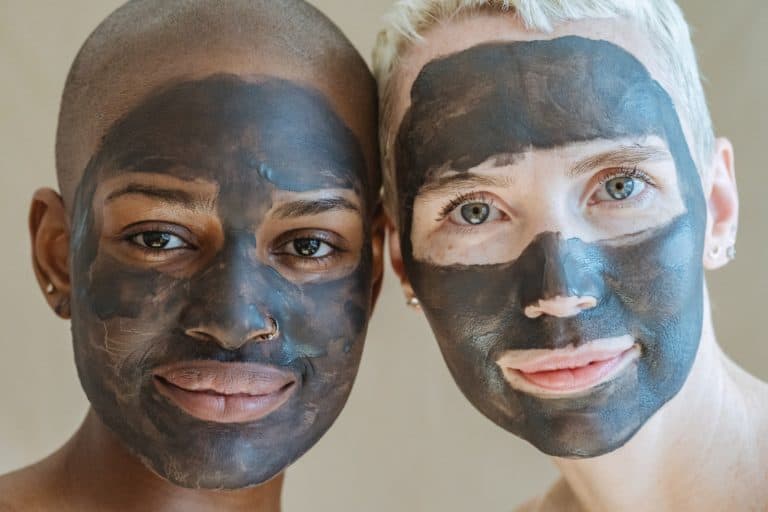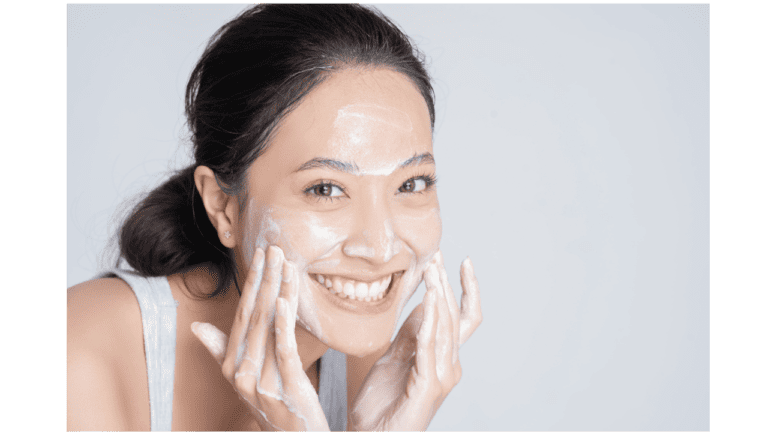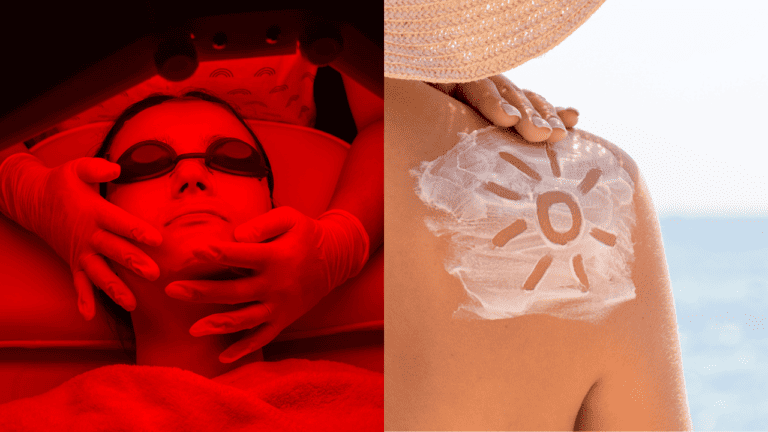According to a recent survey, the average American woman spends approximately $313 per month on skincare products. While some people swear by their skincare routine and credit it for their glowing, youthful complexion, others wonder if all that money is just going down the drain. So, are skincare products a waste of money?

The answer isn’t a simple yes or no. It depends on several factors, including the individual’s skin type, concerns, and goals, as well as the products they use and how they use them. Understanding skincare products and their ingredients, assessing your skin’s needs, and evaluating product effectiveness are all essential steps in determining whether a skincare routine is worth the investment.
Key Takeaways
- Skincare products may or may not be a waste of money depending on several factors.
- Understanding skincare products and assessing your skin’s needs are essential steps in determining the effectiveness of a skincare routine.
- Evaluating product effectiveness and considering costs vs. benefits can help determine whether a skincare routine is worth the investment.
Understanding Skincare Products

Skincare products are designed to improve the appearance and health of the skin. They come in various forms, including cleansers, serums, creams, and retinoids. However, many people question whether these products are worth the investment or if they are just a waste of money. In this section, we will explore the different types of skincare products, ingredients, and myths versus facts to help you understand the value of skincare products.
Types of Skincare Products
Skincare products can be divided into several categories based on their function. Cleansers are used to remove dirt, oil, and makeup from the skin. Serums, creams, and moisturizers are designed to hydrate and nourish the skin. Retinoids are used to increase collagen production and reduce the appearance of fine lines and wrinkles. Sunscreen is a crucial product to protect the skin from harmful UV rays.
Ingredients and Their Purposes
Skincare products contain various ingredients that serve different purposes. Glycolic acid and hydroxy acids are exfoliants that help remove dead skin cells and improve skin texture. Antioxidant serums are used to protect the skin from environmental damage. Hyaluronic acid is a humectant that helps to hydrate the skin. Salicylic acid is an ingredient that helps to unclog pores and reduce acne.
Skincare Myths vs. Facts
There are many myths surrounding skincare products, which can make it difficult to know what to believe. One common myth is that oily skin doesn’t need moisturizer. In reality, even oily skin needs hydration to maintain a healthy barrier. Another myth is that exfoliating daily is necessary for healthy skin. However, over-exfoliating can damage the skin’s barrier and lead to sensitivity. It is essential to understand the facts about skincare products to make informed decisions about what products to use.
In conclusion, skincare products can be an excellent investment for maintaining healthy and youthful-looking skin. By understanding the different types of products, ingredients, and myths versus facts, you can make informed decisions about what products to use. Remember, everyone’s skin is unique, and what works for one person may not work for another. It is essential to experiment and find what products work best for your skin type.
Assessing Your Skin’s Needs

When it comes to skincare, it is essential to assess your skin’s needs correctly. Identifying your skin type, common skin concerns, and consulting with a dermatologist can help you determine the best skincare routine and beauty products for your skin.
Identifying Skin Type
The first step in assessing your skin’s needs is identifying your skin type. There are four main skin types: oily, dry, sensitive, and combination. Oily skin tends to produce excess oil, while dry skin lacks natural oils and can feel tight and itchy. Sensitive skin is easily irritated, and combination skin has both oily and dry areas.
Common Skin Concerns
Once you know your skin type, you can identify common skin concerns that you may need to address. Acne-prone skin may experience breakouts, while redness and rough patches can indicate sensitive skin. Aging skin may show fine lines and wrinkles, while dull and very dry skin may need extra hydration. If you have experienced a burn, it is essential to take special care of the affected area.
Consulting with a Dermatologist
Consulting with a dermatologist can help you determine the best skincare routine and products for your skin. A dermatologist is a clinical assistant professor of dermatology who can evaluate your skin type and any concerns you may have. They can also recommend medical-grade skincare products and treatments that are not available over the counter.
In conclusion, assessing your skin’s needs is crucial in determining the best skincare routine and beauty products for your skin. Identifying your skin type, common skin concerns, and consulting with a dermatologist can help you achieve healthy, radiant skin.
Evaluating Product Effectiveness

When it comes to evaluating the effectiveness of skincare products, it’s important to consider both short-term and long-term results. Many products promise quick fixes, such as instantly smoother or glowing skin, but it’s important to look beyond these immediate results and consider the long-term effects on the epidermis.
Short-term vs. Long-term Results
While some products may provide short-term benefits, such as reducing the appearance of fine lines or wrinkles, it’s important to consider the long-term effects as well. Products that claim to provide anti-aging benefits may be expensive, but they may also provide long-term benefits by increasing cell turnover and collagen production, resulting in healthier, more youthful-looking skin over time.
The Role of Packaging and Marketing
It’s also important to consider the role of packaging and marketing when evaluating skincare products. Expensive packaging and flashy marketing campaigns may make a product seem more effective, but it’s important to look beyond the marketing hype and focus on the actual ingredients and their proven benefits.
Scientific Research and Evidence
When evaluating the effectiveness of skincare products, it’s important to look for scientific research and evidence to support their claims. Products that contain proven ingredients, such as retinoids or topical collagen, may be more effective than those that rely solely on marketing hype. However, it’s important to keep in mind that not all products work for everyone, and it may take some trial and error to find the right products for your skin type and concerns.
Overall, while some skincare products may be a waste of money, there are also many effective options available, from drugstore brands to more expensive alternatives like The Ordinary. Collagen supplements and lasers may also provide effective anti-aging benefits, but it’s important to do your research and consult with a dermatologist before investing in these treatments.
Skincare Routines and Application Tips

Maintaining a healthy skincare routine is crucial to achieving healthy and radiant skin. However, with so many products on the market, it can be challenging to determine which ones are worth the investment. In this section, we will discuss the basics of building a skincare routine, advanced techniques, and application errors to avoid.
Building a Basic Skincare Routine
A basic skincare routine consists of three steps: cleansing, toning, and moisturizing. Cleansing removes dirt, makeup, and impurities from the skin, while toning helps to restore the skin’s pH balance. Moisturizing helps to keep the skin hydrated and prevent dryness.
When choosing skincare products for a basic routine, it is essential to select those that are gentle and suitable for your skin type. Avoid products that contain harsh chemicals that can irritate the skin.
Advanced Skincare Techniques
For those looking to take their skincare routine to the next level, there are several advanced techniques to consider. Retinoids are a popular choice for reducing fine lines and wrinkles, while glycolic acid and alpha-hydroxy acids can help to exfoliate the skin and improve its texture.
However, it is essential to use these products with caution, as they can cause irritation if not used correctly. Always follow the instructions carefully and start with a low concentration to avoid damaging your skin.
Application Errors to Avoid
When it comes to applying skincare products, there are several common mistakes to avoid. For example, using too much product can clog pores and harm your skin. It is also essential to avoid applying products to dirty skin, as this can trap dirt and bacteria and cause breakouts.
Another mistake to avoid is skipping sunscreen. Sunscreen with SPF protection is crucial to protect the skin from harmful UV rays and prevent premature aging.
In conclusion, a skincare routine can be an excellent investment in achieving healthy and radiant skin. By following these tips and avoiding common mistakes, you can ensure that your skincare routine is effective and beneficial for your skin.
The Impact of Lifestyle and Environment
Maintaining healthy skin is not just about using skincare products, but also about taking care of oneself in terms of diet, hydration, sun exposure, and stress management. These factors play a significant role in determining skin health and can impact the effectiveness of skincare products.
Diet and Hydration
A balanced diet and adequate hydration are essential for maintaining healthy skin. The skin needs nutrients such as vitamins, minerals, and antioxidants to function correctly. A diet that is rich in fruits, vegetables, and whole grains can provide the necessary nutrients for healthy skin. Hydration is also crucial for skin health, as it helps to keep the skin moisturized and supple.
Sun Exposure and Protection
Exposure to UV rays from the sun can cause skin damage, premature aging, and even skin cancer. It is essential to protect the skin from the sun’s harmful rays by wearing protective clothing, seeking shade, and using sunscreen. Sunscreen with an SPF of at least 30 can effectively protect the skin from the sun’s damaging effects.
Stress and Sleep
Stress and lack of sleep can negatively impact skin health. Stress can cause inflammation, which can lead to skin problems such as acne, eczema, and psoriasis. Lack of sleep can also lead to inflammation and can cause the skin to appear dull and tired. Practicing stress management techniques such as meditation and getting adequate sleep can help to improve skin health.
In conclusion, skincare products are not a waste of money, but they are not the only factor in maintaining healthy skin. A healthy lifestyle that includes a balanced diet, hydration, sun protection, and stress management is crucial for healthy skin. Skincare products can be an effective tool in a skincare routine, but they should not be the only focus of skin health.
Industry Trends and Consumer Behavior
Influence of Social Media
Social media has had a significant impact on the beauty industry, especially the skincare industry. Consumers are exposed to a constant stream of images and videos of perfect skin and beauty standards that are difficult to achieve. As a result, people are more inclined to invest in skincare products to achieve the desired look. The rise of influencers and personalized feeds has only amplified this trend.
Changing Perceptions of Beauty
Insecurities related to physical appearance have always existed, but the definition of beauty has evolved over time. The current trend is to embrace natural beauty and focus on self-care. This has led to a rise in demand for skincare products that cater to specific skin concerns and needs. Consumers are willing to spend more money on products that are marketed as natural, organic, or cruelty-free.
Rise of Personalized Skincare
The skincare industry has seen a surge in personalized products and services. Consumers are willing to pay a premium for products that are tailored to their specific skin type and concerns. This trend is driven by the desire for customized solutions that address individual needs. The rise of technology has made it easier for companies to offer personalized skincare solutions, such as apps that analyze skin and recommend products.
In conclusion, industry trends and consumer behavior suggest that skincare products are not a waste of money. Consumers are willing to invest in products that cater to their specific needs and concerns. The skincare industry is constantly evolving, and companies are innovating to offer personalized solutions that address individual needs.
Costs vs. Benefits Analysis
When it comes to skincare products, many people wonder if they are worth the cost. To answer this question, it’s important to consider the costs versus the benefits of using these products.
Are You Paying for Results or Hype?
One of the biggest concerns with skincare products is whether or not they actually work. While some products may be backed by scientific research and proven to be effective, others may be more hype than substance. It’s important to do your research and read reviews before investing in a product.
Another factor to consider is the price of the product. Just because a product is expensive doesn’t necessarily mean that it’s better than a cheaper alternative. In fact, some drugstore skincare products have been found to be just as effective as their more expensive counterparts.
Budget-Friendly Skincare Options
For those who are on a tight budget, there are plenty of affordable skincare options available. Drugstore brands like Cetaphil, Neutrogena, and Olay offer a wide range of skincare products that are both effective and affordable.
In addition to drugstore brands, there are also plenty of natural and DIY skincare options that can be made at home for a fraction of the cost. For example, ingredients like honey, oatmeal, and coconut oil can be used to make a variety of skincare products, from face masks to body scrubs.
Ultimately, whether or not skincare products are a waste of money depends on the individual and their skincare needs. While some people may benefit from investing in high-end skincare products, others may find that more affordable options work just as well. It’s important to do your research and consider the costs versus the benefits before making a purchase.
Frequently Asked Questions
What criteria determine the effectiveness of skincare products?
The effectiveness of skincare products depends on several factors such as the ingredients, formulation, and concentration. A product that contains high-quality ingredients in the right concentration can deliver visible results. The formulation of the product also plays a crucial role in determining its effectiveness. Products that have been clinically tested and proven to work are more likely to be effective.
How can consumers identify overpriced skincare items?
Consumers can identify overpriced skincare items by comparing the prices of similar products in the market. They can also check the ingredients and formulation of the product to see if it justifies the price. Some brands may charge more for their products due to their reputation, packaging, or marketing strategy. Consumers should be cautious of products that claim to have miracle ingredients or offer unrealistic results.
What are the essential skincare products recommended for daily use?
The essential skincare products recommended for daily use are a gentle cleanser, moisturizer, and sunscreen. Cleansers help to remove dirt and impurities from the skin without stripping it of its natural oils. Moisturizers help to hydrate and nourish the skin, preventing dryness and flakiness. Sunscreen protects the skin from harmful UV rays that can cause premature aging and skin cancer. Other products such as serums, toners, and exfoliants can be added to a skincare routine depending on individual needs.
It is important to note that while skincare products can improve the appearance and health of the skin, they are not a substitute for a healthy lifestyle. Eating a balanced diet, staying hydrated, getting enough sleep, and avoiding smoking and excessive sun exposure are also essential for maintaining healthy skin.
